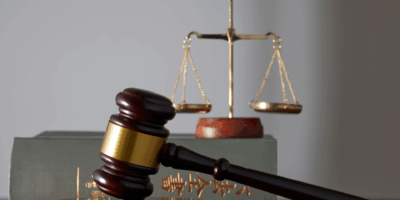Enough of tax authorities’ lawlessness in suspending the limitation period
On 24 May 2021, the Supreme Administrative Court, sitting in the panel of seven judges, adopted a resolution (reference number I FPS 1/21) worded as follows:
"In the light of Article 1 of the Act of 25 July 2002 – Law on the System of Administrative Courts (Journal of Laws of 2017, item 2188, as amended) and Article 1-3 as well as Article 134 § 1 of the Act of 30 August 2002 – Law on Proceedings Before Administrative Courts (Journal of Laws of 2019, item 2325, as amended), assessment of prerequisites for applying by tax authorities when issuing a tax decision of Article 70 § 6 point 1 in connection with with Article 70c of the Act of 29 August 1997 – Tax Ordinance (Journal of Laws of 2020, item 1325, as amended) falls within the limits of judicial competence to review lawfulness of such decision."
In a spoken justification, the Supreme Administrative Court confirmed that authorities issuing a tax decision are obliged to explain that criminal fiscal proceedings suspending the limitation period were not initiated in an instrumental manner, i.e. they were not initiated solely and exclusively to suspend the tax liability limitation period.
The review of a tax decision issued in this respect is therefore the duty of the administrative court. The Supreme Administrative Court also specified examples of circumstances that the administrative court should take into account when examining the purpose of initiating criminal fiscal proceedings, such as: an approaching expiry of a liability limitation period, a stage at which tax proceedings were at the moment of initiating criminal fiscal proceedings, inactivity of tax authorities during the proceedings.
This resolution means that administrative courts are obliged to review whether the initiation of criminal fiscal proceedings, referred to by the authority when issuing a tax decision after the expiry of the statutory limitation period, was not merely of an apparent, instrumental nature. If such an analysis shows that the proceedings were instrumental, then their initiation would not have the effect referred to in Article 70 § 6 point 1 of the Tax Code. As a consequence, the tax liability limitation period was not suspended and the tax decision was issued in relation to the expired tax liability, in breach of the law, and therefore should be repealed.
Although the issued resolution is crucial from the point of view of protection of taxpayers' interests, still each case of initiating criminal fiscal proceedings and their effectiveness in terms of suspending the limitation period will require an individual analysis. GWW has unique knowledge in this area. For 10 years we have been investigating the phenomenon of instrumental initiation of criminal fiscal proceedings. The results of our research convinced the Supreme Administrative Court that the instrumental initiation of the criminal fiscal proceedings is an example of systemic abuse of the law by tax administration authorities, which has a considerable influence on the adoption of the resolution.
The report prepared by GWW is available at the following link: https://gww.pl/media/publications/pdfs/Raport-instrumentalne-wszczynanie-postepowan-karnych-skarbowych-gww-2019-12-12.pdf
Related posts
New regulations on transparency of remuneration in the recruitment process
New regulations on transparency of remuneration in the recruitment processLABOUR LAW NEWSLETTER – collective labour agreements under new rules
LABOUR LAW NEWSLETTER – collective labour agreements under new rules Political agreement on abolishing the €150 threshold for e-commerce shipments – changes as early as 2026?
news
Political agreement on abolishing the €150 threshold for e-commerce shipments – changes as early as 2026?
news Political agreement on abolishing the €150 threshold for e-commerce shipments – changes as early as 2026?
Political agreement on abolishing the €150 threshold for e-commerce shipments – changes as early as 2026?Flavourings with alcohol. CJEU: it is the intended purpose that counts, not the actual use
Flavourings with alcohol. CJEU: it is the intended purpose that counts, not the actual useConcerned about
missing out
on key legal
developments?



